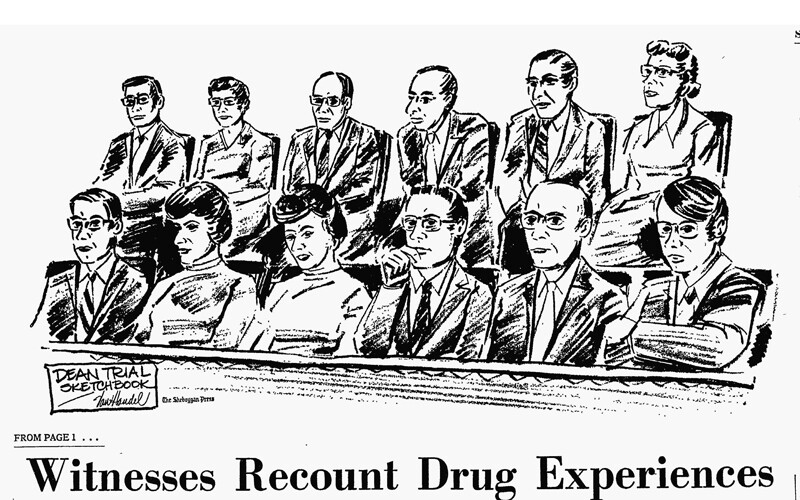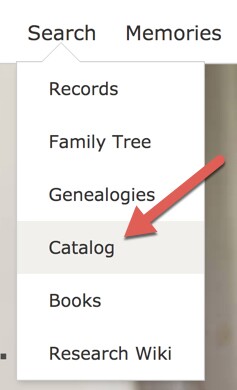County records can be a great resource for researching your family tree. Learn what you can do to discover the treasure trove of information found in county records.
What Can I Learn from County Records?
County records, often referred to as county courthouse records or courthouse records, can help prove family relationships and where family members lived. You can also find occupations and other important information in county records.

Ancestors’ names can be found in court records when they have served as defendants, plaintiffs, witnesses, or jurors. Ancestor names may also appear in records about the following:
- Probate and estates
- Naturalization
- Divorce
- Mortgage and lien
- Adoption
- Guardianship
- Licenses
- Appointment to public offices
- Taxes
- Civil and criminal lawsuits
- Property disputes
- Crime
- Election results
How to Start Searching County Records

Indexed county records, as well as digitized images of these records, can be found online at sites such as Ancestry.com or FamilySearch.org. While both have many statewide databases,Ancestry.com features more statewide databases where you can filter by county.FamilySearch.org has more individual county databases.
One place you can find county records is in the FamilySearch Catalog. To get to the catalog, go to FamilySearch.org, and click Search in the toolbar at the top of the page. Then select Catalog from the submenu at the top of the new screen.
On the catalog search page, type the name of the place you wish to search, and then click Search. Look through the list of results for official county records of all types.
You can also see if any records can be found in state archives, public and university libraries, and local genealogical and historical societies. However, not every court record can be found online. Sometimes, the best option is to go to the courthouse yourself. Here are some suggestions for how to find the records you need at courthouses.
Have a Clear Objective
Because each county can organize its records differently and business is still conducted in courthouses, searching county records can be confusing and overwhelming. Knowing what specific information you hope to find will help you navigate these records more successfully.
Visit the County Courthouse Website
Look at your county courthouse website before you go. The website may have a directory for old records or online information that can help you plan your trip to the courthouse. A phone call to the courthouse can also clear up any questions you have about records before you go. Determine where the various types of records may be accessed—some records may be stored in an auxiliary facility.
Go to the Courthouse
Once you have exhausted online information, local libraries,interlibrary loans, and phone calls, it is still wise to visit the courthouse because you may find great evidence that wasn’t indexed online.
Look at Surrounding Counties
Counties often change boundaries over the years, so you may be looking in the wrong place. Check records of parent and neighboring counties when you come up empty in the county you think your family was from. The Atlas of Historical County Boundaries can show what counties existed over the course of time and how the boundaries changed.
Explore Other Resources
Some records may not be in courthouses because of fires and other disasters. Thankfully, researchers and genealogists have done a good job of preserving records.
To find information about where to locate the records you need, the FamilySearch Wiki is an excellent source, as is Ancestry.com. State archives and state libraries are also a must. Many have cooperated with filming by FamilySearch or Ancestry.com. State and United States district court records may also help you locate information pertinent to a county where your ancestors lived.
Start Looking for County Records

County records are a fun and interesting way to search for your family history. The records serve as great follow-up sources for family members. Spending a few minutes online can prove to be rewarding and can be a fun journey to learn something new.
Topics from this article and some of its material came from Laurie Castillo’s class, “Determining What Records Still Exist: A Real-Life Application of Burned County Research,”at the 2019 BYU Conference on Family History and Genealogy.
The BYU Conference on Family History and Genealogy is held annually and offers classes for genealogists and others wanting to learn about their ancestors. Keep an eye on the BYU conference page for announcements about next year’s schedule and when registration opens.
Laurie Castillo is VP of Utah Valley Technology and Genealogy Group and a Former VP/Board Member of the Utah Genealogical Association. She is also a BYU FHL consultant and teacher of 27+ years for webinars as well as a professional researcher and writer of 30+ years. She's presented at RootsTech, the BYU Family History Conference, BYU Education Week, and FGS/UGA. Her interests include history, mystery, geography, and genetics.
Learn More from the 2019 BYU Genealogy Conference
At FamilySearch, we care about connecting you with your family, and we provide fun discovery experiences and family history services for free. Why? Because we cherish families and believe that connecting generations can improve our lives now and forever. We are a nonprofit organization sponsored by The Church of Jesus Christ of Latter-day Saints. To learn more about our beliefs, click here.






